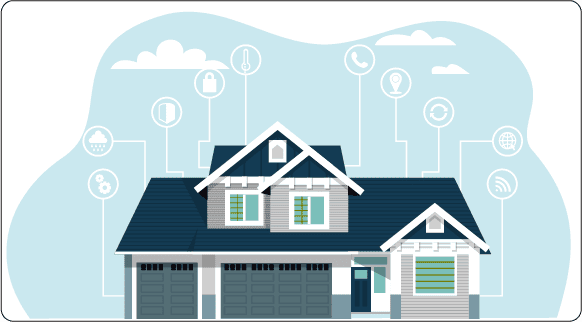Owning a Vegetable Garden at Home

Health is wealth! Nothing can be compared with the taste of homegrown products. Just imagine the bright color and fresh smell of homegrown tomatoes, leafy veggies, bite guards and other different vegetables. If they are from our vegetable garden, happiness, amusement, and excitement will be doubled.
An American biologist Douglas R Green said ”a vegetable garden doesn’t just feed your body. It also feeds your soul.”
Home-grown vegetables double ensure the health and nutrition of the family. Overuse of pesticides resulted in many harmful diseases in humans. To prevent vegetables from rotting, harmful contagious diseases are used from the very initial stages of growth.
These vegetables are accessed by common people from markets. Overconsumption of those poisoned vegetables can cause harm to human life. Gardening vegetables can be practiced in every house for the sake of maintaining a healthy society.
The idea of growing vegetables at home can save you hundreds of rupees. Vegetable gardens in homes can be implemented easily. It doesn’t require any particular area or any other requirements. The process can be done for a low cost within the available facilities. You don’t have to worry about the garden area required, it can be done even in limited spaces.
There are different types of vegetable gardens in homes like backyard vegetable gardens, vegetable gardens on roofs, terrace vegetable gardens etc.
There are some factors which you have to notice if you have a plan to grow a vegetable garden in your home. Some of them are given below:
- Choose the vegetables to be planted wisely. The duration of harvest is different for different plants. For example, vegetables like tomatoes, potatoes, and carrots can be harvested within two to four months. There are also vegetables which can be harvested once a year.
- Ensure the availability of sunlight. Sunlight is one of the most important factors for the healthy growth of a plant. The plant should get a minimum of six to eight hours of sunlight a day. Then only it can do its functions like photosynthesis. Therefore the location you choose has also a significant role in home gardening.
- Greenhouses can provide ideal conditions for growing plants regardless of the weather or location. Opaque material should be used for roofing. Then only sunlight can reach the plants.

- Be wise when it comes to irrigation. Proper irrigation is advisable for better productivity. It also depends on the amount of rainfall received by areas. Drip irrigation or overhead sprinklers can be used for water supply in home vegetable gardens.
- Drainage is associated with irrigation. Over watering can cause rotten roots.
- Don’t overuse pesticides or fertilizers. Everything should be added at a minimum. Overuse can cause the depletion of fertility. Vermicomposting will be the best fertilizer. It can be prepared from degradable food waste. The remains of used vegetables, peels, or even rotten vegetables can be dumped into a pit. The microbes will initiate the degradation process. After a week we will get the organic self-made compost. It can be applied to plants at regular intervals. Cow dung is also called a natural fertilizer.
- Proper spacing should be maintained between each crop and plant. Crowdedness results in negative results.
- Fencing can divide the space of a vegetable garden from a courtyard or other common places. Proper support should be given to climbers. Small plants require support occasionally.
These are the case of normal fertile land. The texture of soil can vary according to the area. A barren backyard can be converted into a vegetable garden for home. It can be turned into a production house of vegetables. Little planning and effort it requires to do things. The same is in the matter of vegetable gardening.
A productive and well-oriented vegetable garden can be prepared in our home. Low maintenance is required. Organic vegetables can be cultivated easily from our home itself. Nowadays organic vegetables have high market value. Vegetable gardening can be used as a source of income. The happiness harvested from the vegetable garden can be shared to others through the market.
Garden size or vegetable garden layout can be decided according to the space available. The profit will depend on the amount of care and energy we put forth. Soil beds can be prepared with utmost care for better production. Worms are known as farmers’ friends. They help to retain the fertility of the soil. Nowadays worm casting is also available for soil which lacks fertility.
The rooftop vegetable garden is also known as a terrace garden or balcony garden. People who live in flats and urban areas can practice gardening for healthy vegetables. It is environmentally friendly gardening. Also, those who lack the facilities of a courtyard or backyard find this type of vegetable garden useful.
Gardening can even be done on used plastic bags. You have to add proper sol and put pores for water drainage. Vegetables like brinjals, tomatoes and leafy vegetables like spinach can be grown through such methods.
Human beings are working hard in hope of getting a bright and better future. A proper diet should be maintained to have a healthy life. The very first step toward a better future can be put forth by the idea of a vegetable garden.
Having eco-friendly, tasty food harvested at home can increase the taste of food to a great extent. Improve your health and save money on food. Homegrown products are the best. Thus by having homegrown vegetables we can hope for a healthy and happy future.

Unlocking the Power of Feng Shui in Real Estate: A Guide to Harmonizing Your Home
Health is wealth! Nothing can be compared with the taste of homegrown products. Just imagine the bright color and fresh...
What is External Development Charges (EDC)?
Health is wealth! Nothing can be compared with the taste of homegrown products. Just imagine the bright color and fresh...
Importance of Highway for Indian Real Estate Sector
Health is wealth! Nothing can be compared with the taste of homegrown products. Just imagine the bright color and fresh...
Ways to Manage Traffic in Metro City
Health is wealth! Nothing can be compared with the taste of homegrown products. Just imagine the bright color and fresh...
Factors that Influence the Psychology of Buying Home
Health is wealth! Nothing can be compared with the taste of homegrown products. Just imagine the bright color and fresh...
Owning a Vegetable Garden at Home
Health is wealth! Nothing can be compared with the taste of homegrown products. Just imagine the bright color and fresh...
How Relevant Are Vastu Shastra Principles Today?
Health is wealth! Nothing can be compared with the taste of homegrown products. Just imagine the bright color and fresh...

















